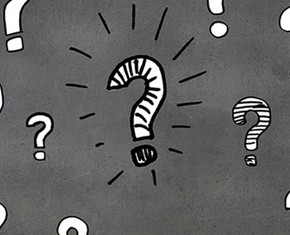The views expressed in our content reflect individual perspectives and do not represent the authoritative views of the Baha'i Faith.
…the foundation of the divine religions is one. But we can see that certain forms and ceremonies have crept in. They are heretical, they are accidental, because they differ, hence they cause differences among religions. If we set aside all superstitions and see the reality of the foundation we shall all agree, because religion is one and not multiple. – Abdu’l-Baha, Divine Philosophy, p. 26.
If religion is one, as the Baha’i Faith teaches, why don’t the historic religions agree in all their concepts, let alone in their particulars?
Two reasons: their social laws are intended for a specific time and place, and, as mentioned in an earlier article in this series, their original teachings become corrupted over time, usually by a presumptuous clergy making leaps of logic after the founder is long gone. When we think about religions, we often compare the particulars of their social laws as well as their corruptions — and not the essences of those Faiths.
 Now, strictly speaking, progressive revelation is not a new idea. Jews believe that God revealed his will to Abraham, and to Moses after him, and to many prophets after him. Christians believe in the authenticity of all of those Jewish prophets, but then add John the Baptist, Christ, and the apostles after him. Muslims believe in the Jewish prophets, the divinity of Jesus, then add Muhammad. What the modern-day followers of all of those Faiths have in common, of course, is that they all believe their revelation was the final one and all others coming after that, imposters – never mind that the founders of those Faiths, in every case, spoke of one who would come in the future.
Now, strictly speaking, progressive revelation is not a new idea. Jews believe that God revealed his will to Abraham, and to Moses after him, and to many prophets after him. Christians believe in the authenticity of all of those Jewish prophets, but then add John the Baptist, Christ, and the apostles after him. Muslims believe in the Jewish prophets, the divinity of Jesus, then add Muhammad. What the modern-day followers of all of those Faiths have in common, of course, is that they all believe their revelation was the final one and all others coming after that, imposters – never mind that the founders of those Faiths, in every case, spoke of one who would come in the future.
So the truly unique elements of Baha’u’llah’s progressive revelation are:
1. He equalized the station of all of the founders of the major religions, in Baha’i parlance known as Manifestations of God, and,
2. He said that this progressive revelation was an organic process that had occurred from time immemorial and would continue eternally. He did say that we should not look for another Manifestation before 1,000 years’ time — the medicine has to be given time to work — but he clearly stated that others would come after Him to carry civilization forward yet again.
It’s interesting to consider how Baha’u’llah’s “fourth way” conception of religion, progressive revelation, is different from but in a way unifies all three previous conceptions:
- With Postmodern Pluralism it shares the belief that there is not simply one path to God, and in a sense ups the ante on this pluralism, affirming that not only is there more than one path, but indeed ALL the historic religions originated with an authentic revelation from God, with prophets who were equally exalted in their station.
- With Materialism it shares a certain clear-eyed humility about our ability to really know the essence of God. While we believe in God, we also hold that God is an “unknowable essence” (which is why He appointed human messengers that could relate to us through our own language). Additionally, Baha’u’llah affirmed the importance of science, saying that true science and true religion had to be in harmony. He made the independent investigation of truth, without attachment to either superstition or tradition, the first prerequisite of a spiritual journey.
- And finally, with Fundamentalism it shares the belief that God has a definite plan for humanity, that there is purpose and direction in that plan, that the ancient prophets were in fact correct (however misinterpreted they might be), and there is indeed one prophet whose message in particular is optimized for us (because it is optimized for this age and the unique problems and complexities of it).
Because the Baha’i Faith is the only religion that fully embraces progressive revelation as an ongoing, organic process; the Faith is not simply another church, or another denomination, or even just another religion. It is a whole new way of thinking about religion. It is not just its own species of religion, but is a species, genus, family, order, phylum, and kingdom, incorporating all faiths into one faith. While it shares numerous traits with other religions, the Baha’i Faith in itself embodies a radical new conception of religion — one that makes peace between and unites these three dominant old worldviews.
______
This essay was inspired by the book Logos and Civilization: Spirit, History, and Order in the Writings of Baha’u’llah, by Nader Saiedi, University Press of Maryland, 2000.
















Comments
Sign in or create an account
Continue with Googleor